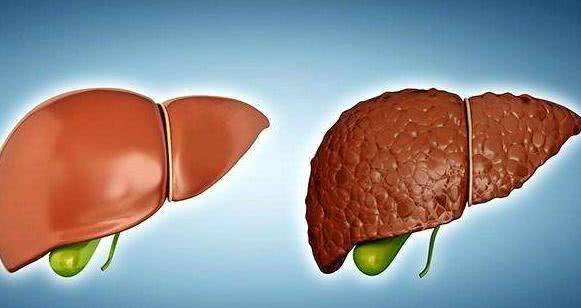The liver, as a hub for transporting nutrients in the body, when the amount of fat it absorbs exceeds its processing capacity, the excess fat will accumulate in the liver, a condition known as fatty liver. The accumulation of fat not only affects liver function but may also be targeted by the immune system, triggering inflammation, leading to liver fibrosis, and potentially progressing to cirrhosis. Specifically, when the fat content in the liver exceeds 5% but is less than 10%, it is defined as mild fatty liver. Many people do not take this seriously, with a viewpoint suggesting that obesity is the main issue and losing weight is enough to resolve mild fatty liver. So, can mild fatty liver be eliminated simply by losing weight?
In fact, weight loss does have a certain degree of assistance for fatty liver, especially for patients with mild conditions, it is indeed a good treatment measure; as long as weight loss is done healthily, then mild fatty liver will recover on its own.
However, excessive dieting can worsen the condition of fatty liver because under malnutrition, the production of proteins transporting lipids decreases, leading to increased fat accumulation in the liver. Recently, there was news of a post-2000s female student who developed fatty liver due to excessive dieting for weight loss.
Upon hearing such news, some were puzzled. What should be done if one has fatty liver? Particularly in cases of mild fatty liver, is it necessary to undergo systematic treatment?
From a scientific standpoint, mere weight loss cannot cure fatty liver. Fatty liver is a liver disease caused by an excessive deposition of fat in the liver. For fatty liver caused by alcohol consumption, simple weight loss is not a treatment; quitting drinking is necessary to reduce the impact of alcohol and alleviate fatty liver.
If it is non-alcoholic fatty liver disease, reducing weight can decrease fat deposition in the liver and alleviate fatty liver. However, weight loss mainly involves reducing carbohydrates and proteins; alongside weight loss, the intake of lipid-lowering medications is essential to promote the metabolism of fat within the liver, thus achieving the goal of treating fatty liver.
Therefore, to treat mild fatty liver in a scientific manner, weight loss alone is not the definitive solution, but scientifically losing weight is crucial. Based on this, individuals with mild fatty liver should adhere to the following:
1. Scientific weight loss: When the liver transports fat, it requires protein to synthesize lipoproteins with fat. Unscientific dieting for weight loss can easily lead to protein deficiency, preventing the liver from transporting excessive fat, causing fat accumulation in the liver and worsening fatty liver. Individuals with fatty liver should ensure protein intake while reducing fat intake. Therefore, consumption of lean meat with low fat content is recommended.
2. Enhance exercise: Proper exercise can reduce body fat percentage and waist circumference. For every 1% decrease in body weight, serum transaminase levels due to fatty liver can decrease by 8.3%. With a 10% weight loss, most elevated transaminase levels can return to normal. It is recommended to engage in aerobic exercise of moderate intensity at least four times a week; regular exercise not only helps control fatty liver but also enhances overall health.
3. Quit alcohol timely: The specific mechanism of alcohol-induced liver damage is not fully understood, and it may involve immune reactions triggered by substances produced during alcohol metabolism in the liver. Prolonged alcohol damage can lead to alcoholic hepatitis, cirrhosis, and even liver cancer. Mild alcoholic fatty liver disease may not exhibit obvious symptoms; however, quitting alcohol at this stage can fully restore liver fat and damage.
Although mild fatty liver may not present evident discomfort, ignoring it and allowing it to progress may lead to moderate to severe fatty liver and even cirrhosis. Generally, if liver function has not been impaired, mild fatty liver can be reversed through a combination of “changing unhealthy lifestyle + weight loss,” and some patients may not even require medication. Therefore, individuals with mild fatty liver should consider their own physical condition, choose scientific methods for treatment and relief, and not treat weight loss as a “lifesaver.” This approach will make them their body’s master and ensure their health!
Chen Jiaolong (Community Healthcare Service Center, Kangshan Street, Wuxing District, Huzhou City, Zhejiang Province)


